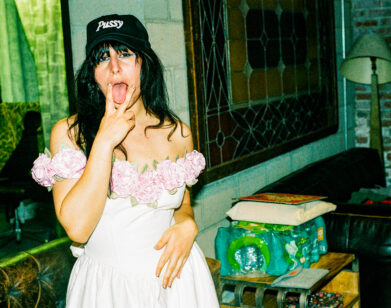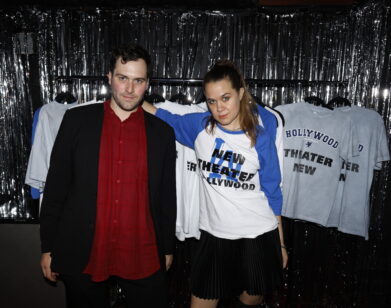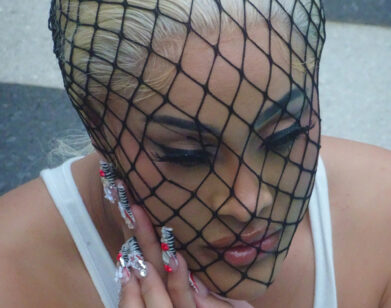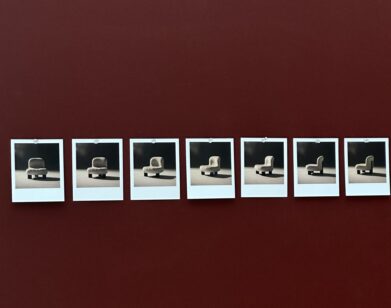The Fight in Joshua Mohr
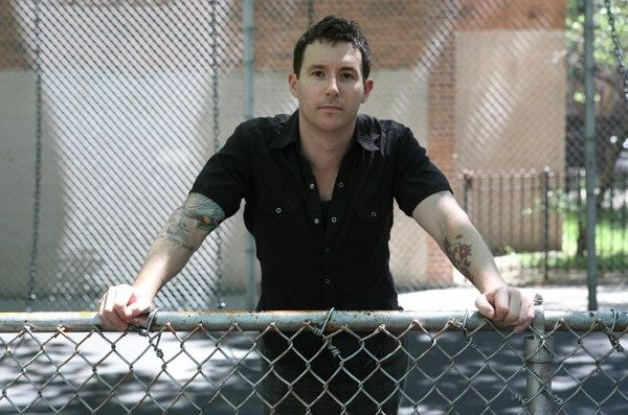
ABOVE: JOSHUA MOHR. IMAGE COURTESY OF KEVIN IRBY
Joshua Mohr’s novel Fight Song (Soft Skull Press) is a call to arms. Mohr introduces us to Bob Coffen, a pudgy game designer who is mired in suburban malaise. His wife has cooled to him considerably since their first date in a cyber world; their children are also impossibly distant. Coffen has come to despise his job, creating virtual spaces that were once his beautiful escape. So when his bicycle is intentionally run off the road by his bullying neighbor’s SUV, Coffen begins a quest to regain the vigor and passion he once possessed. Mohr paints a perfect picture of suburbia, frustrated dreams and the aching desire inside all of us. By turns funny and heartbreaking, Mohr’s novel pulls us into a world of prim hedges and socioeconomic comfort, which is not as comfortable as it may at first seem. Rousing and refreshing, Fight Song is an ode to embracing our freedom. We spoke with Mohr about the perils of suburban life, the audacity of change, quests, and always seeking to learn more.
ROYAL YOUNG: As a disgusting, urban city kid, can you explain to me the atmosphere of the suburbs and how that permeates your book?
JOSHUA MOHR: It’s funny, I’ve written three novels before that all deal with addicts and weird artists living in the Mission in San Francisco, which was my home turf for many years. With this, I wanted to challenge myself and get out of my comfort zone. So I figured the suburbs would be the ecosystem I knew nothing about firsthand as an adult.
YOUNG: Did you actually go out into the suburbs to get the feel of it?
MOHR: I did four days of terrible reconnaissance work, where I went to a couple suburbs in the East Bay and South Bay and took some pictures and notes. Then I wrote the most horrific place I could possibly envision. If Dante was writing The Divine Comedy in 2013, he might very well have set part of it in the suburbs.
YOUNG: [laughs] To be perfectly frank, the suburbs scare the shit out of me.
MOHR: Yeah, and I think what scares us so much about it is we see them as this point of stagnation. It’s a place where we go and curdle and die.
YOUNG: How has the stagnation of the suburbs leaked into every aspect of your protagonist’s life?
MOHR: In the character of Bob Coffen, we see that kind of complacency personified. Nothing is inherently wrong with his life. He has a wife, kids, a pretty lucrative job. Things should be okay. And yet, because he feels so mired in boredom, he stops striving. One of the book really investigates is what happens to us when we stop trying? When we stop trying to improve ourselves anymore?
YOUNG: What does happen?
MOHR: With Bob Coffen, it’s this life as recurrent dream, where you can’t specify what happened in August versus March, you sleepwalk through your life. One of the reasons I wrote the book is as a cautionary tale to myself. I’m moving towards 40, and I want to be the kind of adult that keeps learning. I want to always be open to new experiences.
YOUNG: That’s incredibly important. The interesting thing about Coffen is that he hasn’t lost that completely. It’s when we decide we know everything, is the real danger.
MOHR: For sure. I also think there’s a difference between accepting that intellectually and emotionally. When we meet Coffen, he knows he is spinning his wheels in the mud, but he can’t find the anger or audacity to make any changes.
YOUNG: You say this book is different from your previous ones, but a theme that seems to run throughout is a drowning of sorrows and escapism. Not dealing with problems head on and how comfortable that position can really be. Why is it good to make ourselves uncomfortable?
MOHR: Whether it’s by violence or drugs, these are the kinds of abuse we can readily identify. But it’s more difficult to recognize passive abuse, where Coffen can’t really be a good husband because he’s not happy. He can’t be a good father because he’s not happy. He can’t be a good employee because he’s not happy. The book becomes this call to arms. We follow him on this quest.
YOUNG: When is enough enough?
MOHR: With Bob Coffen, it is the moment that launches the book. He is riding his bike home and his alpha man-boy neighbor runs him off the road. We meet Coffen when he’s finally going to go for it, like that movie Network from the ’70s, “I’m mad as hell, and—”
YOUNG: “I’m not gonna take it anymore!” Scream it out the windows.
MOHR: Right!
YOUNG: Do you think we need quests, adventures, or game playing in our lives to feel alive?
MOHR: I’m not a gamer. But I am very aware of the escapism of drugs. In my mind those kind of do the same thing. They dull us to the aches and pains of our status quo. I don’t think escaping is necessarily a problem, but we can get addicted to almost anything. If you’re craving being in this other reality and you don’t want to participate in your own reality, those are the times we have to start asking ourselves difficult questions.
YOUNG: Do you think there’s a way to take that sense of gaming and integrate it into our lives, so that we view our lives as quests and change the shape of them?
MOHR: I like what you’re saying, because it puts the onus back on the individual. There’s always a narrative to be made, it’s just about if that individual person is going to embrace that adventure. Quests always have checkpoints and victories. Certainly if you impose that back on your family, boyfriend or girlfriend that would be much more fulfilling.
YOUNG: I think so. I always feel like I’m on a quest. [laughs]
MOHR: And the nice thing about that, too, is it emphasizes the whimsy in life. We only get one little shot at this, why not grab it by the nuts and make the most of it we possibly can? The more we’re doing to ensure we’re following our joy and passion, that’s when we really start to put the gas in our lives.
FIGHT SONG IS OUT NOW.

